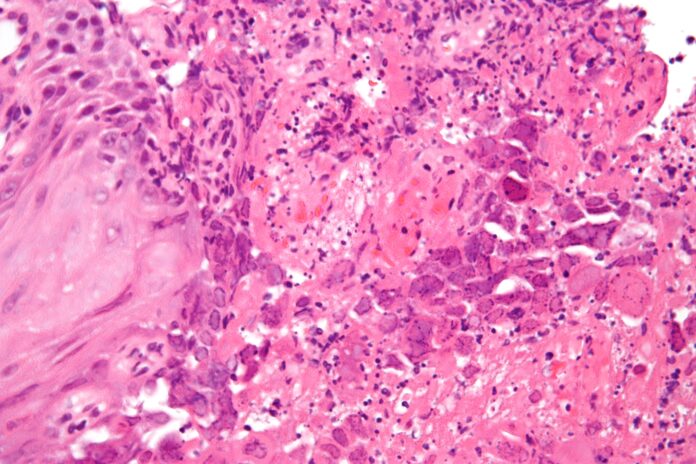
Esophagitis is an inflammation of the esophagus, the muscular tube that carries food and liquids from the mouth to the stomach. This condition can be caused by a variety of factors, including acid reflux, infections, and certain medications. The symptoms of esophagitis can vary depending on the underlying cause, but there are some common signs to look out for.
In this article, we will explore the various symptoms of esophagitis, and how they can be effectively managed and treated. Understanding these symptoms can help individuals seek the appropriate medical attention and begin the road to recovery.
1. Difficulty Swallowing
One of the most common symptoms of esophagitis is difficulty swallowing, also known as dysphagia. This can make it challenging to eat or drink, and can often lead to a feeling of food getting stuck in the throat. The sensation may be accompanied by pain or discomfort, and it can significantly impact an individual’s quality of life. If you experience persistent difficulty swallowing, it is important to seek medical attention to rule out any serious underlying conditions.
2. Chest Pain
Chest pain is another common symptom of esophagitis. This discomfort can range from mild to severe and may be felt behind the breastbone. It is often mistaken for heart-related issues, but it is important to note that esophagitis can also cause chest pain. If you experience persistent chest pain, especially after eating or when lying down, it is crucial to seek medical evaluation to determine the cause and receive appropriate treatment.
3. Heartburn
Heartburn, characterized by a burning sensation in the chest, is a common symptom of acid reflux and can also be indicative of esophagitis. This discomfort is often worse after eating or when lying down, and can significantly impact daily activities. While over-the-counter medications can provide temporary relief, it is important to consult with a healthcare professional to address the underlying cause of heartburn and ensure appropriate management of symptoms.
4. Nausea and Vomiting
Nausea and vomiting are symptoms that can be associated with esophagitis, especially if it is caused by infections or certain medications. These symptoms can significantly impact an individual’s overall well-being and may require medical intervention to manage effectively. If you experience persistent nausea and vomiting, it is important to seek medical evaluation to determine the underlying cause and receive appropriate treatment.
5. Regurgitation
Regurgitation, the sensation of food or liquid coming back up into the mouth, can be a common symptom of esophagitis. This can occur after eating or when lying down, and can be accompanied by a bitter or sour taste in the mouth. If you experience persistent regurgitation, it is important to seek medical attention to address the underlying cause and receive appropriate management of symptoms.
6. Hoarseness
Hoarseness, or changes in the voice, can be a symptom of esophagitis, especially if it is caused by acid reflux. The inflammation of the esophagus can lead to irritation of the vocal cords, resulting in hoarseness or a raspy voice. If you experience persistent hoarseness, it is important to seek medical evaluation to determine the underlying cause and receive appropriate treatment.
7. Chronic Cough
A chronic cough that does not seem to go away can also be a symptom of esophagitis, especially if it is caused by acid reflux. The irritation of the esophagus can trigger coughing as a protective mechanism, and this symptom can significantly impact an individual’s overall well-being. If you experience persistent coughing, it is important to seek medical attention to determine the underlying cause and receive appropriate management of symptoms.
8. Bloating and Gas
Bloating and excessive gas can also be symptoms of esophagitis, especially if it is caused by swallowing air due to difficulty swallowing. These symptoms can be uncomfortable and may significantly impact an individual’s quality of life. If you experience persistent bloating and gas, it is important to seek medical evaluation to determine the underlying cause and receive appropriate treatment.
9. Bad Breath
Bad breath, also known as halitosis, can be a symptom of esophagitis, especially if it is caused by acid reflux. The regurgitation of stomach contents can lead to an unpleasant odor in the mouth, and this can significantly impact an individual’s self-esteem and overall well-being. If you experience persistent bad breath, it is important to seek medical attention to address the underlying cause and receive appropriate management of symptoms.
10. Unintentional Weight Loss
Unintentional weight loss can be a concerning symptom of esophagitis, especially if it is accompanied by difficulty swallowing and other digestive issues. This can be indicative of a more serious underlying condition, and it is important to seek medical evaluation to determine the cause of weight loss and receive appropriate treatment.

















